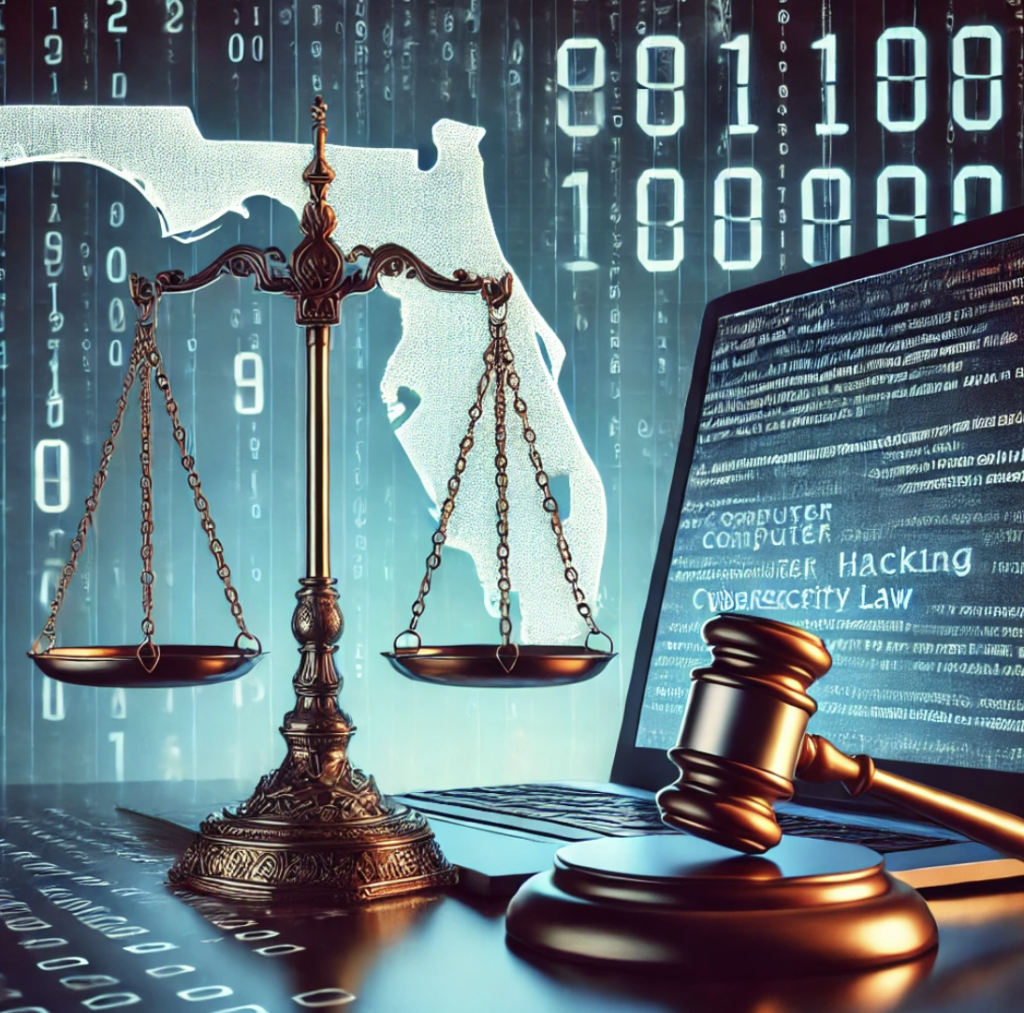Understanding Computer Hacking and Legal Defense: A Guide for Florida Residents

In the modern era of technology, computer hacking is a growing concern that carries serious legal consequences. Whether it involves unauthorized access to sensitive information, phishing schemes, or cyber intrusions, Florida law takes hacking-related crimes seriously. For individuals accused of hacking, understanding the legal framework, potential penalties, and available defense strategies is crucial.
Understanding Computer Hacking in Florida
What Constitutes Computer Hacking?
Computer hacking refers to the unauthorized access or exploitation of computer systems, networks, or data. It often involves bypassing security measures to gain access to confidential or sensitive information.
Examples of computer hacking include:
- Gaining unauthorized access to financial accounts.
- Installing malware or spyware on a system.
- Phishing attacks to steal personal information.
- Disrupting computer systems or networks through Distributed Denial-of-Service (DDoS) attacks.
Relevant Florida Statutes
Under Florida law, computer hacking-related offenses are prosecuted primarily under the Florida Computer Crimes Act (Florida Statutes Section 815.01 – 815.07). These statutes define various forms of computer-related offenses, including hacking, and outline penalties for violations.
Key provisions include:
Section 815.06 – Offenses against users of computers, computer systems, computer networks, and electronic devices:
-
- Prohibits, among other conduct, willfully, knowingly, and without authorization accessing or causing damage to any computer, computer system, or network.
- Penalties depend on the nature and severity of the offense:
- Second-degree felony: If hacking results in damage exceeding $5,000 or involves theft of trade secrets, medical records, or sensitive government data.
- First-degree misdemeanor: For lesser unauthorized access offenses.
These laws aim to safeguard personal privacy, prevent financial losses, and protect businesses and government institutions from cyberattacks.
Potential Penalties for Computer Hacking in Florida
The penalties for hacking offenses vary based on:
- The level of harm or damage caused.
- The type of information accessed or stolen.
- Whether the hacking involved government or financial institutions.
Felony Penalties
- Second-Degree Felony:
- Up to 15 years in prison.
- Fines of up to $10,000.
- Third-Degree Felony:
- Up to 5 years in prison.
- Fines of up to $5,000.
Misdemeanor Penalties
- First-Degree Misdemeanor:
- Up to 1 year in jail.
- Fines of up to $1,000.
Hacking crimes may also carry additional collateral consequences, such as:
- Civil liability for damages caused to victims.
- Long-term impacts on personal and professional reputation.
- Restrictions on future use of technology or computer systems.
Defending Against Hacking Allegations
If you are accused of hacking, mounting a strong legal defense is critical. A skilled criminal defense attorney can analyze the details of your case and develop a strategy tailored to your situation.
Common Defense Strategies
- Lack of Intent:
- Prosecutors must prove that the accused intentionally accessed a system or data without authorization. If the access was accidental or due to a misunderstanding, this can form the basis of a defense.
- Authorization or Consent:
- If the accused had permission to access the computer or network, it may negate allegations of unauthorized access.
- Insufficient Evidence:
- A lack of direct evidence linking the accused to the hacking activity can weaken the prosecution’s case. Defense attorneys can challenge forensic evidence and question its accuracy or reliability.
- Identity Theft or Impersonation:
- Cybercrimes often involve impersonation or the use of another person’s credentials. A defense attorney can argue that the accused’s identity was stolen and used to commit the offense.
- Entrapment:
- If law enforcement coerced or induced the accused into committing a hacking offense, this may be a valid defense.
- Alibi or Lack of Opportunity:
- Demonstrating that the accused could not have committed the crime due to physical or technological constraints can be an effective strategy.
Proactive Steps to Strengthen Defense
- Gather and preserve digital evidence.
- Document any communications or interactions related to the case.
- Avoid discussing the case on social media or public forums.
- Work closely with a knowledgeable attorney experienced in computer crime defense.
Preventing Allegations of Hacking
Whether you are a business professional, a student, or a casual computer user, safeguarding against allegations of hacking is essential. Implementing robust cybersecurity practices can protect your systems and reduce the risk of misunderstandings.
Best Practices to Protect Yourself
- Secure Your Devices:
- Use strong, unique passwords for all accounts and devices.
- Enable two-factor authentication (2FA) wherever possible.
- Avoid Unintended Access:
- Refrain from exploring systems or networks without explicit permission, even out of curiosity.
- Comply with IT Policies:
- Adhere to organizational guidelines and protocols regarding computer use.
- Stay Informed:
- Educate yourself about hacking laws and potential consequences of certain actions.
- Document Permissions:
- Maintain clear records of authorization for accessing sensitive systems or data, especially in professional environments.
The Role of a Criminal Defense Attorney
If you face hacking allegations, hiring an experienced criminal defense attorney is essential. At Kenneth Padowitz, P.A., we can:
- Provide guidance on navigating the legal process.
- Analyze the evidence against you.
- Develop a robust defense strategy.
- Advocate on your behalf in court or during plea negotiations.
Additionally, an attorney with expertise in Florida’s computer crimes laws can identify weaknesses in the prosecution’s case and work toward reducing or dismissing charges.
Computer hacking allegations are serious, carrying severe penalties under Florida law. Understanding the legal framework, the consequences of a conviction, and the methods of defense is critical for anyone facing such charges. By working with an experienced criminal defense attorney, you can ensure that your rights are protected and that you have the best chance of achieving a favorable outcome. If you are accused of hacking or are concerned about potential legal risks, reach out to Kenneth and Joshua Padowitz to explore your options and build a strong defense.
Protecting your freedom and reputation begins with taking proactive legal steps.


